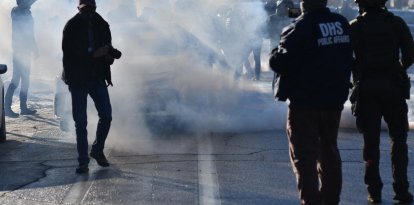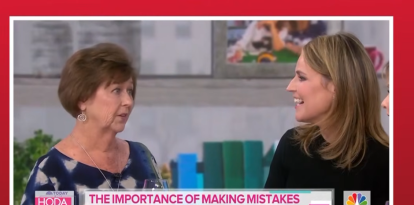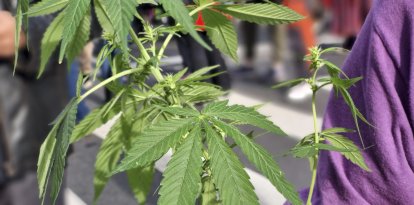Who will be most affected by the suspension of food stamps?
The closure of the Supplemental Nutrition Assistance Program (SNAP) for humanitarian parole recipients will mainly affect Cubans and Haitians.

Haitian immigrants receive food in the U.S.
Among the main people affected after the suspension of the Supplemental Nutrition Assistance Program (SNAP), better known as Foods Stamps, are Haitians and Cubans.
The measure will begin to take effect on April 24, a date on which more than 321,000 immigrants of these nationalities will lose their access to the aid they received after entering the U.S.
According to official information from the U.S. Department of Agriculture (USDA), the decision was communicated on April 3 through a notification sent to the state agencies in charge of administering SNAP.
The move is in response to Donald Trump's termination of Humanitarian Parole status, created in 2023 during the Biden administration as a legal avenue for the orderly entry of migrants from Cuba, Haiti, Nicaragua and Venezuela.
Trump revokes Humanitarian Parole
The aforementioned program was created by Biden and Alejandro Mayorkas in 2022. Although it was initially only for Venezuelans, in 2023 it was extended to Cubans, Nicaraguans and Haitians. After some brief suspicions of fraud, it was back in operation from August until October 2024, when the White House suspended it before the presidential election.
Until August 2024, some 530,000 people had entered the country thanks to CHNV. Breaking down the data by nationality, there were approximately 110,000 Cubans, 210,000 Haitians, 93,000 Nicaraguans and 117,000 Venezuelans. The program gave them the possibility of living and working in the country for a period of two years, if they passed health and background checks.
Through SNAP, beneficiaries received a monthly electronic card (EBT) that functions as a debit card and allowed them to purchase food in supermarkets and other authorized stores. The amount received varied depending on the size of the household, the applicant's income and other socioeconomic conditions.

Politics
Illegal immigration drops 94% from last year because migrants 'scared' of consequences
Agustina Blanco
Parole recipients who could not access Food Stamps
Of the affected immigrants, 110,240 are Cubans and 211,040 are Haitians. Although it has not been specified how many of them were enrolled in the food program, the measure has generated great concern among migrant communities and human rights organizations.
Unlike Cubans and Haitians, who were able to access certain social benefits after their arrival in the U.S., other beneficiaries, such as Venezuelans and Nicaraguans, never qualified for this type of assistance.
Who is not affected by the suspension of Food Stamps?
The federal instruction clarifies that food assistance will be immediately withdrawn, unless individuals can demonstrate that they are already in another SNAP-eligible immigration status.
The USDA clarified on its website that this restriction does not affect immigrants who entered through the CBP One application, nor those who are on parole while awaiting resolution of asylum applications or immigration adjustments.
Also exempt are those who have regularized their status through channels such as the Cuban Adjustment Act or the Temporary Protected Status (TPS), in effect for Haitians until August 2025.
More immigration restrictions promoted by Trump after his return to the White House
In announcing the repeal of CHNV in late March, the Department of Homeland Security (DHS) stated that all persons favored by the program should leave the country, except for immigrants who have applied for adjustment of status, such as asylum, Temporary Protected Status (TPS) or crime victim visas (T or U).
Also exempt from expedited removal are individuals who have filed a family-based claim, fiancée petition or immigrant employee application, with the appropriate fee paid.
All this occurs in the midst of a political offensive of border closures and mass deportations launched by President Donald Trump since his return to the White House.



























